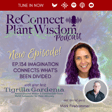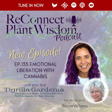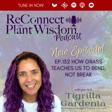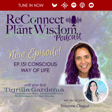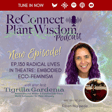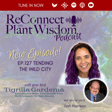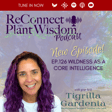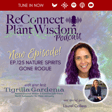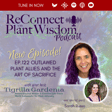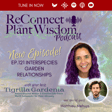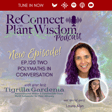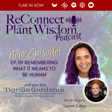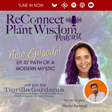
Ep.92 Stop Searching for Your ‘One Thing’ - Embracing Multipotentiality
Have you ever felt like being a "Jack of all trades" was somehow a bad thing? Trust me, I’ve been there. For years, I thought my multi-passionate nature was a flaw—jumping from one interest to another, blending creativity with technology, art with logic. But then, plants showed me something profound: nature thrives in diversity, and so can we. In this episode, I dive deep into embracing your multi-passionate self, mastering the whole instead of focusing on one thing, and thriving in your own ecosystem of talents.
Topics Covered about Embracing Multipotentiality
➡️ How the phrase “Jack of all trades, master of none” misleads us.
➡️ Why multiplicity and adaptability are your superpowers.
➡️ Lessons from nature: embracing diversity within and around you.
➡️ Practical steps to harmonize your unique talents into a cohesive life.
Resources Mentioned
- Plant Consciousness Commentary
- Where I live, Damanhur Spiritual Community
- Plant Wisdom Book Club
- Embrace Your MultiPassionate Nature
🌟Connect with nature-conscious creatives, multipotentialites, and naturentrepreneursin the premier online ecosystem that nourishes plant reawakening and community support for accelerated evolution and co-creation with otherkin. >> JOIN OUR COMMUNITY <<
☝🏽ReConnect with Plant Wisdom podcast Ancient and modern knowledge from biology to spirituality about the wondrous ways plants help you lead a Naturally Conscious life. Subscribe on your favorite podcast player.
// Let's work together: book a Discovery Call
// EcoConscious Business Partners: Learn from The Shift Network
// Opening and Closing music by Steve Sciulli and Poinsettia from The Singing Life of Plants
// Socialize with me Facebook | Instagram | LinkedIn | Youtube

